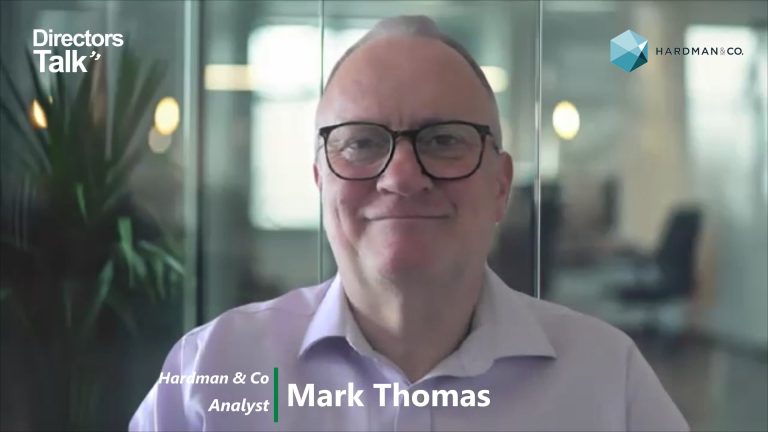RM Secured Direct Lending PLC (LON:RMDL) is the topic of conversation when Hardman and Co’s Analyst Mark Thomas caught up with DirectorsTalk for an exclusive interview.
Q1: You called your report on RM Secured Direct Lending “Predictable revenue streams generating high yield”, why?
A1: In a world when the market is desperate for yield, we believe it is really important to understand how that dividend is generated.
RM Secured Direct Lending offers investors an ongoing ca.6.5% dividend yield, whose sustainability is supported by multi-year assets, a rising revenue yield and economies of scale. Credit, we believe, is well controlled, and we provide readers in our report a detailed review of its assessment, monitoring and recovery. We believe the gearing level is appropriate, the investment manager’s interests are aligned to shareholders, and that any discount will be actively managed.
Like any lender, there are risks when the cycle turns; also, RMDL has some junior debt positions, and its book has shown a propensity to turn over, which in the future could see more external refinancing.
Q2: RMDL is a lender, could you tell us more about its strategy?
A2: RMDL is operating in a part of the market where competition is moderate. High-street banks have significantly withdrawn from non-standard lending, and the size of RMDL’s participation, £2 million to £10 million plus, is too small for many corporate lenders/capital market investors looking to structure complex deals.
RMDL can thus charge for intellectual capital, and its permanent capital structure means it can also exploit illiquidity premiums.
Q3: You have previously highlighted how important credit management is, can you outline what RMDL does there?
A3: Credit risk management is core to any lender. We conclude that credit at RMDL is well controlled, significantly reducing the risk that impairments will put the dividend under pressure.
In particular, we note: i) robust credit assessment with appropriate measures specific to the bespoke nature of the clients; ii) the benefits from control post draw-down; iii) the value of security; and iv) the diversification of the portfolio.
Credit risk management is about limiting the probability of default and reducing any loss in the event of default. RMDL’s procedures appear well positioned to do both and, to date, there have been no major loss incidences.
Q4: You touched on manager alignment with shareholders, what is RMDL doing differently from peers?
A4: RMDL has agreed with the investment manager that half its fees are used to buy shares that will then be locked in for 12 months. The shares are bought in the market, or could be issued at NAV, quarterly in arrears.
With a holding of 961k shares, ca. £1million, we believe this generates a significant alignment between the investment manager’s interest and shareholders. While the lock-in is for a year, the programme was committed until December 2019, i.e. three years after RMDL launched. This appears a reasonable balance between allowing the investment manager access to cash for its own business needs and ensuring that it will be on risk should performance disappoint.
Q5: What is RM Secured Direct Lending doing to manage the discount?
A5: RMDL is trading at premium to NAV so its discount management is about limiting any prospective downside rather than action today. It has a number of discount management policies in place to limit any downside, in particular a buy-back programme should the discount hit 6% and a liquidity event at NAV (less costs) at year four. Having such policies may, of course, prevent the discount ever reaching 6%, as the market will expect the company to be a buyer at that level.










































